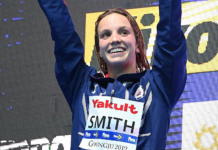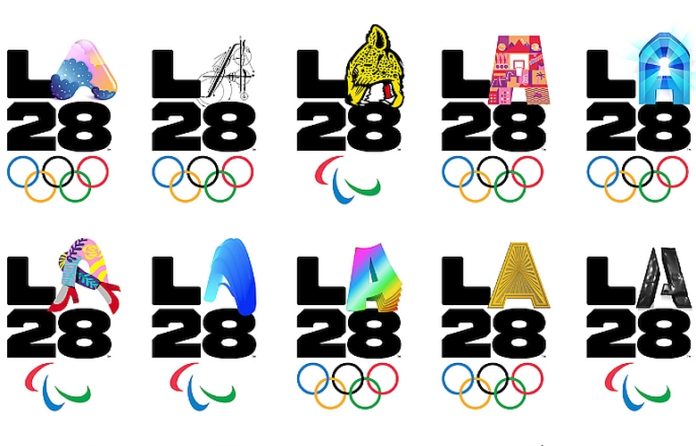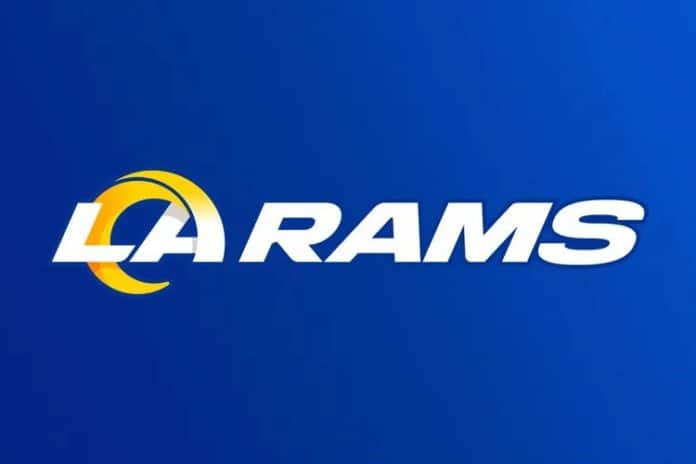★ The Sports Examiner: Chronicling the key competitive, economic and political forces shaping elite sport and the Olympic Movement.★
★ To get the daily Sports Examiner Recap by e-mail: sign up here! ★
≡ GAME CHANGE IN 2026? ≡
The LA28 Olympic and Paralympic Games organizers announced a sixth Founding Partner – its highest sponsor tier – on Friday with financial and marketing software giant Intuit joining, also confirming that its title sponsorship of the Intuit Dome in Inglewood will remain in place during the 2028 Games.
The Intuit Dome will be the site of basketball and is the fourth venue for 2028 to retain its corporate name: the Peacock Theatre (weightlifting and boxing) and Universal Studios (squash) via Comcast; the Honda Center (volleyball) in Anaheim and now the Intuit Dome, thanks to the new venue-naming availability pioneered by LA28.
Intuit will also support the LA28 Small Business Supplier Program “to provide access to resources, mentorship, and opportunities for local businesses to become suppliers for the LA28 Games” and will “also expand its national financial education program for students in the LA community, helping them build real-world skills.”
Intuit also becomes a multi-year partner of the U.S. Olympic & Paralympic Committee.
¶
The Intuit announcement is the fourth Founding Partner for LA28 announced in 2025, with Honda, Google and Starbucks joining early sponsors Comcast and Delta Airlines. The LA28 sales team, headed by John Slusher, is increasingly confident in reaching $2 billion of the $2.517 billion budget line item for domestic sponsorship by the end of 2025.
Also coming in 2026 will be the start of Olympic ticket sales, with registration starting in January and actual sales as early as April 2026. That’s more than a year earlier than every other recent Olympic Games.
LA28 had, for a long time, a budget line of $1.929 billion for tickets and hospitality sales. In March 2025, that number was increased by $569 million – more than 29% – to $2.498 billion. That’s a dramatic show of confidence in ticket and hospitality demand with an estimated 14 million tickets to be available for the Olympic and Paralympic Games.
And that money could start pouring in in the late spring and early summer of next year. Which leads to some interesting possibilities, perhaps in a year from now:
● Thanks to its work in continuously shifting venues to increase efficiency, save money and raise more revenue, LA28 is close to optimizing its site plan for 2028. That means that it should also, by the late summer or early fall of 2026, have a much better grip on its projected costs to stage the Games – Olympic and Paralympic – in 2028.
● As sponsorship sales continue, and with the new opportunity for venue naming rights created by LA28, the organizing committee will know – internally – where it stands financially, with Chief Financial Officer Karen Sturges in the center ring.
● If – and only if – the outlook is bright, and it may well be, LA28 could be a strong position to make a move which will create significant operational freedom for its final year and a half going into the Games:
In concert (of course) with the International Olympic Committee, offer to relieve the City of Los Angeles and the State of California from their financial guarantees.
Both the City and the State are in difficult financial environments. Los Angeles City Council members regularly wail about the calamity that will befall the City if the LA28 organizers have a deficit. Los Angeles is currently contracted to cover the first $270 million of a deficit, then the State of California would pick up the next $270 million and then the City has all of the rest of the liability.
To end the City and State liability would mean the end of the many entanglements that the organizers now have with the City:
● Reports to the City would be reduced; LA28 has already made commitments for local hiring and spending which it will want to monitor itself to show its good faith to the community.
● The City’s focus will turn, quickly, not to whether LA28 will have enough money to cover its expenses, but whether the City itself will be ready. During the difficult budget negotiations earlier in 2025, City officials said there was no comprehensive plan concerning the Games and the City’s roles. That needs to get fixed.
● LA28 will be able to manage its operations without turning for permission to the City for any sites which are within the City limits, or sports which were placed there at some point. At a 27 August meeting of the City Council’s Ad Hoc Committee on the 2028 Olympic and Paralympic Games, the move of diving from the LA84 Foundation/John C. Argue Swim Stadium used for the 1932 Games to the Rose Bowl Aquatics Center was accompanied by a promise to spend $2-3 million to upgrade the 1932 pool. Council member Curren Price Jr., whose district includes the swim stadium, told the committee:
“I’m glad that LA28 has come to the table to ensure that South L.A. is not left behind. They committed investing in the John C. Argue Swim Stadium in Expo Park and delivering a pool that is going to be certified for national and international competition.
“This means that long after the Games, our young people, our athletes and our community are going to have a world-class facility right here in South Los Angeles. This is the kind of legacy that I think we must insist upon, as the host city and as the financial guarantor. …
“This is how we make the Games work for all of L.A., by demanding that every change, every compromise, come with some lasting benefit for all of our residents.”
He also referred to an as-yet unpublicized plan to install added broadband communications towers in the South L.A. are, which could improve online access in the area.
These kinds of “arrangements” would go away. In fact, the City will have to concentrate to completing most of the work on the renovation of the Los Angeles Convention Center to be sure that it is available for the Games, or L.A. will face a multi-million-dollar liability for a last-minute redirection of the sports scheduled there.
And LA28 will weigh, even more than it does now, the spending of every dollar between then and the closing of the Paralympic Games on 27 August 2028.
If the LA28 organizers have a financial surplus from the Games, as the 1932 and 1984 organizing committees did, it is directed to go to a new entity to be co-managed by the City and representatives of LA28. That would end and the LA28 organizers could then create their own legacy foundation to support sport.
There is a long way to go between now and 2028, but if (and only if) the LA28 finances continue to brighten, the opportunity to vaporize the financial “Sword of Damocles” that so worries the L.A. City Council could be a benefit to the City, to the State of California and to the organizing committee.
And, despite losing some feeling of control over the 2028 Games, the L.A. City Council and Mayor Karen Bass (if re-elected, or her successor) would be hard-pressed – in the current economic circumstance – to say no to eliminating any liability for the finances of the LA28 organizers.
Let’s check back on this in a year. It could be epic.
Rich Perelman
Editor
¶
★ Receive our exclusive, weekday TSX Recap by e-mail by clicking here.
★ Sign up a friend to receive the TSX Recap by clicking here.
★ Please consider a donation here to keep this site going.
For our updated, 850-event International Sports Calendar for 2025, 2026 and beyond, by date and by sport, click here!























